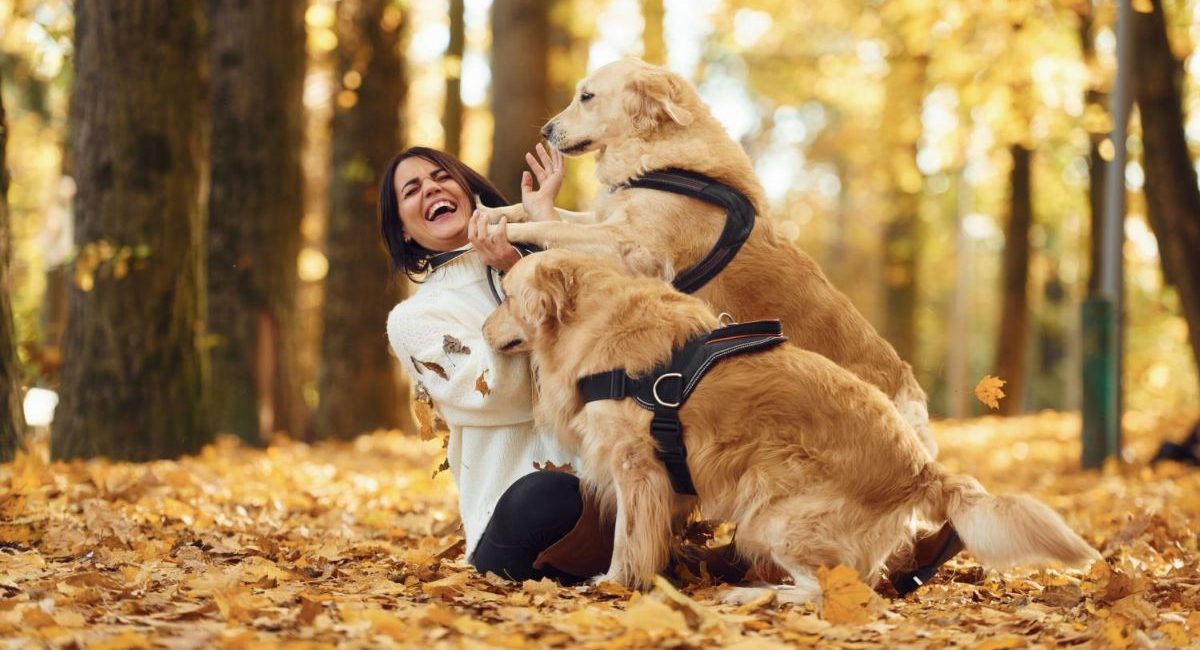As responsible dog owners, we understand the significance of regular exercise and outdoor time for our furry companions. However, it’s equally important to recognize the role of socialization in a dog’s well-rounded development. Socialization helps dogs build positive behaviors, adapt to various environments, and form healthy relationships with both humans and fellow canines. In this article, we’ll delve into the importance of socialization and explore the differences between group dog walks and solo walks in achieving this vital aspect of a dog’s life.
The Benefits of Socialization:
-
Improved Behaviour:
Socialization helps dogs learn appropriate behavior and etiquette when interacting with other dogs and people. They pick up cues on how to communicate effectively and resolve conflicts peacefully.
-
Reduced Anxiety:
Dogs that are well-socialized tend to be less anxious and fearful in new situations. This is especially important for puppies, as early socialization can prevent the development of phobias.
-
Enhanced Confidence:
Positive social experiences boost a dog’s confidence, making them more comfortable in various environments and around different individuals.
-
Better Temperament:
Dogs that are socialized from an early age tend to have more stable and friendly temperaments, which makes them easier to train and live with.
Group Dog Walks:
-
Increased Social Interaction:
Group dog walks offer dogs the opportunity to interact with other canines, promoting socialization and the development of essential social skills.
-
Exercise and Mental Stimulation:
Group walks often involve more physical activity and mental stimulation as dogs engage with their peers. This can lead to a tired and content pup at the end of the walk.
-
Behaviour Modelling:
Dogs in a group setting often observe and mimic the behaviour of others, which can lead to positive behavioural changes.
Solo Walks:
-
Personalized Attention:
Solo walks allow for individualized attention from the dog walker, addressing specific needs, behaviour, and training goals of the dog.
-
Safety and Focus:
Dogs with behavioural issues or special requirements may benefit from solo walks, where the walker can ensure their safety and maintain a focus on their unique needs.
-
Puppy Training:
For puppies who are not fully vaccinated, solo walks may be safer as they reduce the risk of disease exposure.
Choosing the Right Approach:
The choice between group dog walks and solo walks depends on your dog’s temperament, age, and specific needs.
- Group walks are excellent for social dogs who enjoy the company of other canines.
- Solo walks may be preferable for dogs with behavioral concerns or health issues that require individual attention.
In many cases, a combination of both approaches can provide a well-rounded socialization experience.
Socialization is a crucial aspect of a dog’s life that shapes their behaviour, confidence, and overall well-being. Whether you opt for group dog walks or solo walks, the key is to ensure that your dog has opportunities to interact with others, learn positive behaviours, and thrive in various environments. By striking the right balance, you’ll help your canine companion become a well-adjusted, happy, and confident member of your family and the broader community.

